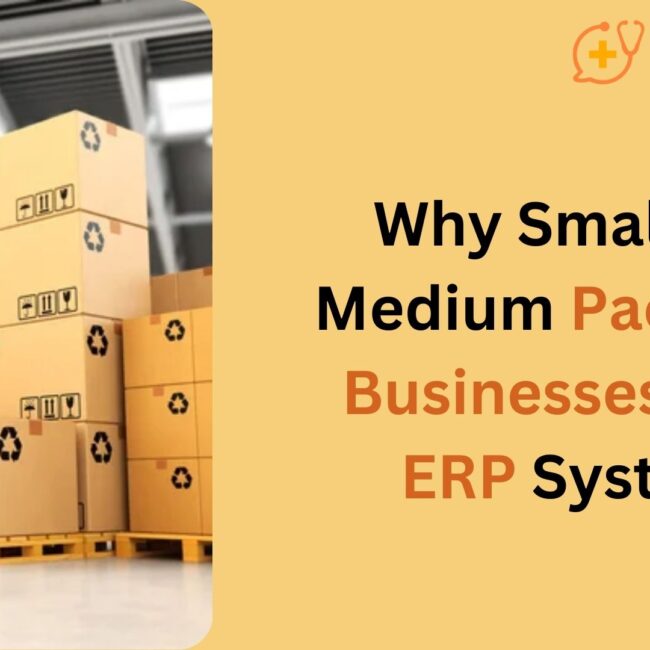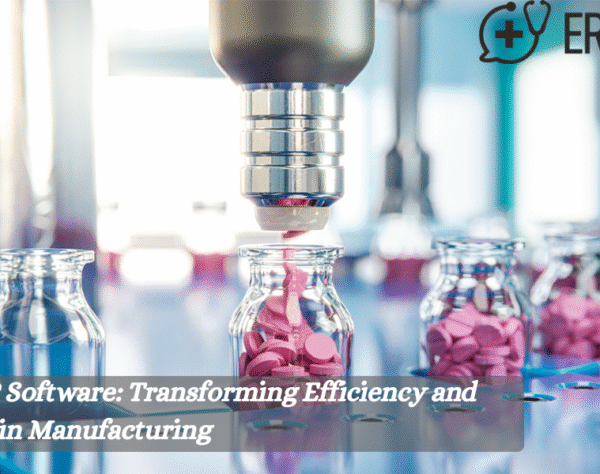
The Surprising Ways ERP Can Innovate Pharma Industry

How ERP Systems Are Paving the Way for Pharma Future
The pharmaceutical industry is constantly under pressure to innovate, streamline processes, and keep up with ever-changing regulations. With such a complex environment—packed with intricate supply chains, strict compliance requirements, and highly sensitive products—how can companies stay ahead? Well, the answer might just surprise you: ERP (Enterprise Resource Planning). ERP solutions for pharmaceutical industry are more than just tools for managing day-to-day tasks—they’re real game-changers. They’re transforming how pharma companies run their operations, making processes smoother, improving compliance, and speeding up drug development. Curious about how exactly ERP can spark innovation in the pharma industry? Let’s dive in and explore!
The Real Impact of ERP on Pharma Day-to-Day Operations
When you think about ERP solutions, the first thing that comes to mind might be inventory management or finance tracking. But in reality, ERP for the pharmaceutical industry impacts nearly every aspect of a company’s operations.
From procurement to manufacturing and distribution, an ERP system integrates various departments into one unified platform. This allows pharma businesses to streamline processes and make data-driven decisions. No more scrambling between spreadsheets or manually updating multiple systems. Everything you need is in one place, accessible in real-time.
Ensuring Compliance and Meeting Regulatory Demands
Pharmaceutical companies face strict regulatory requirements like GMP and FDA standards, where small mistakes can lead to costly fines or recalls. ERP software helps ensure compliance by automating tasks like audit trails, reporting, and traceability. When regulations change, the ERP system updates processes automatically, reducing the need for manual tracking and costly consultants.
Improving Financial Management and Profitability
Managing finances in the pharmaceutical industry is complex, but ERP solutions for the pharmaceutical industry make it more efficient. ERP automates tasks like invoicing, accounts payable, and budgeting, while real-time data helps track revenue and manage cash flow.
This integration allows finance teams to monitor costs across departments, enabling quick responses to revenue dips or cost spikes, ensuring profitability and financial stability.
Faster Drug Development and Time-to-Market
Speed is critical in the pharma industry—especially when it comes to drug development. The faster a company can get a drug from the lab to the market, the more competitive it becomes. ERP for pharma companies can accelerate this process by improving communication between departments, automating workflows, and integrating data across R&D, production, and regulatory teams.
Efficient Inventory Management—A Key to Pharma Success
In the pharmaceutical industry, inventory management is more than just keeping track of stock; it’s about ensuring safety, quality, and availability. Whether it’s raw materials, finished products, or distribution, ERP systems help pharmaceutical companies manage inventory efficiently and safely.
How does ERP improve inventory management? It enables real-time tracking of inventory, ensuring products are always available when needed while reducing the risk of stockouts or overstocking. Moreover, ERP systems help track expiration dates, manage batch and lot control, and maintain traceability from manufacturer to consumer—critical factors for safety and regulatory compliance.
The Surprising Benefits of ERP in Pharma
You might be thinking, “All of this sounds great, but how can ERP really change the game for pharma companies?” The truth is, ERP solutions for pharma are transforming businesses in surprising ways, enabling companies to:
- Automate routine tasks: From order processing to compliance checks, automation eliminates manual errors and reduces overhead costs.
- Enhance collaboration: With integrated departments, teams can collaborate easily, improving efficiency and decision-making across the board.
- Ensure better data security: With high security and real-time tracking, sensitive pharmaceutical data is kept secure, protecting intellectual property and patient information.
- Scale with growth: As pharmaceutical companies expand, an ERP system can scale with them, adding new modules to accommodate new products, locations, or markets.
FAQs About ERP for Pharma Industry
What benefits does ERP provide to pharma supply chains?
ERP helps pharma companies track their supply chain in real-time, reducing delays and ensuring timely deliveries of raw materials and finished products.
How does ERP help with batch traceability in pharma?
ERP systems maintain detailed records of each product batch, ensuring quick traceability in case of recalls and improving product safety.
How does ERP support product quality management in pharma?
ERP systems track every aspect of production, from raw materials to finished goods, ensuring consistent quality and compliance with industry standards.
What are the financial benefits of using ERP for the pharmaceutical industry?
ERP solutions streamline financial processes, from invoicing to budgeting, helping pharma companies optimize cash flow, minimize errors, and maintain profitability while staying compliant with financial regulations.
Can ERP help reduce time-to-market for new pharmaceutical products?
Yes, by improving cross-department collaboration, automating workflows, and providing real-time data, ERP systems help accelerate drug development and get products to market faster.
What role does ERP play in ensuring pharmaceutical product safety?
ERP systems monitor and document every step of the production process, from sourcing to distribution, helping ensure product safety and compliance.
Is it difficult to implement an ERP system in the pharmaceutical industry?
While ERP implementation can require time and effort, the benefits far outweigh the challenges. Many ERP solutions are designed with the pharmaceutical industry in mind, making implementation smoother and faster.
How can ERP systems help pharmaceutical companies manage research and development?
ERP systems connect R&D with other departments, making it easier to share data, track progress, and streamline workflows, which speeds up product development.
Can ERP systems integrate with existing pharmaceutical software?
Yes, ERP solutions can integrate with existing systems, helping to centralize data from various sources into one seamless platform.
ERP is no longer just a back-office tool for pharmaceutical companies; it’s a strategic asset that can drive efficiency, innovation, and growth. By adopting an ERP system tailored for the pharma industry, businesses can streamline operations, ensure compliance, and speed up product development—all while staying competitive in an ever-changing market.
Ready to explore the power of ERP System? Let’s start the conversation!
Warning: Trying to access array offset on value of type null in /home/u231991539/domains/erpdoctor.in/public_html/wp-content/plugins/wpforms/includes/class-frontend.php on line 109







